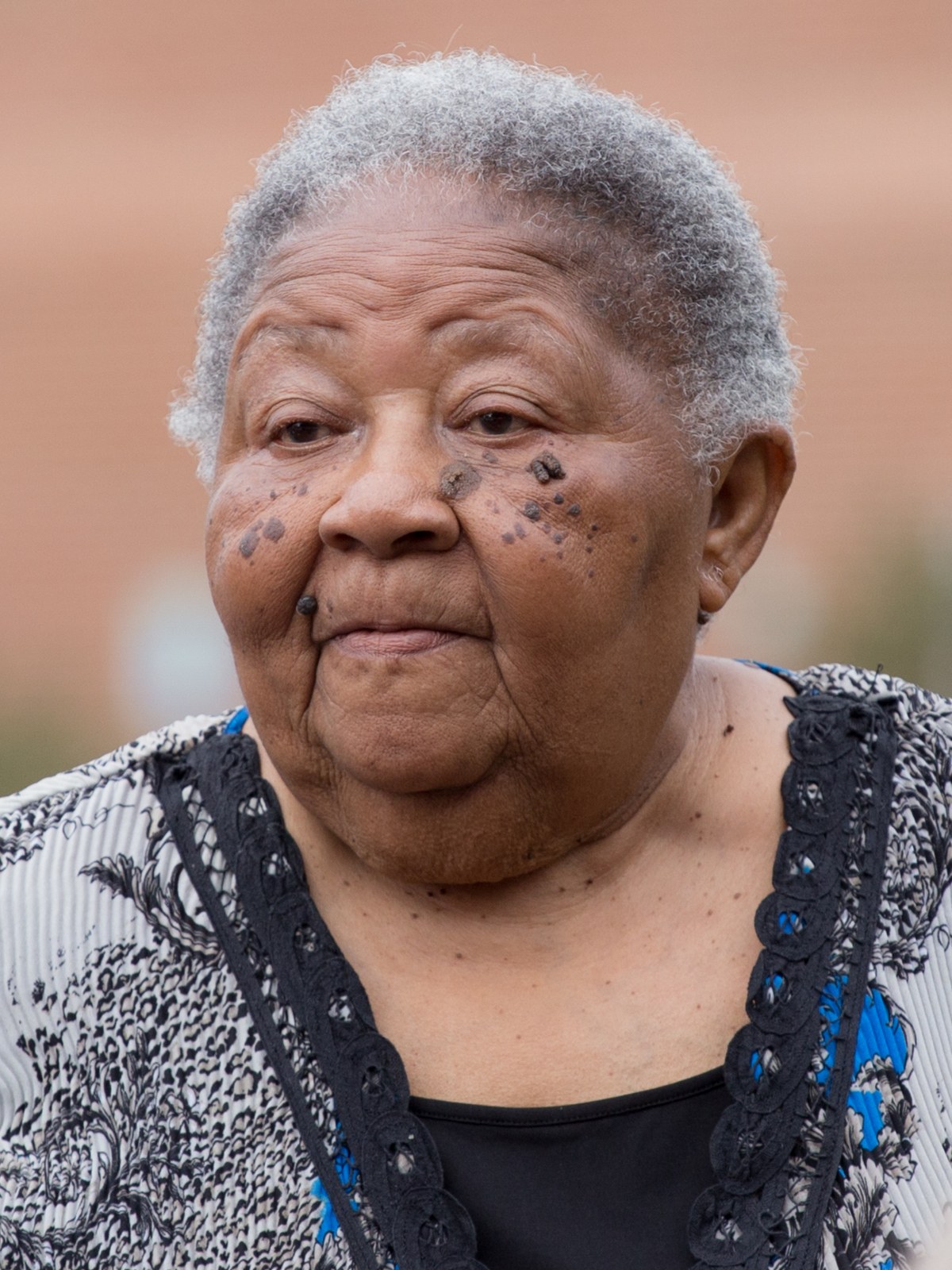ŌĆ£You know her as Harriet Tubman. We call her Aunt HarrietŌĆØ

ŌĆ£People wanted to forgetŌĆØ
Valerie Ross Manokey, great-grandniece.
Photo courtesy of subject.At age 82, Valerie Ross Manokey knows that her memory is fading a bit. But the retired teacherŌĆÖs aide in Cambridge, Maryland, who is TubmanŌĆÖs great-grandniece, becomes animated when recalling bits of family lore. ŌĆ£We know Harriet was born nearbyŌĆöwe say ŌĆśdown the countryŌĆÖ because the area is not that big,ŌĆØ she says of Dorchester County, a rural enclave on MarylandŌĆÖs eastern shore. ŌĆ£She was very intelligent, very kind, and worked very, very hard just to survive.ŌĆØ Manokey has held her own grandchildren in rapt attention with stories passed down by her maternal ancestors. ŌĆ£There was one place where my aunt and [fugitive slaves] were,ŌĆØ she says. ŌĆ£The soldiers were coming through and they had to hide. The house had an opening in the floor, and they all climbed down to hide until the soldiers left.ŌĆØ
The painful legacy of slavery meant stories often did not survive from generation to generation. ŌĆ£Grandma said that when their family members came out of slavery, people didnŌĆÖt really want to talk about all of that,ŌĆØ Tina says. ŌĆ£She said people wanted to forget. They just wanted to move forward.ŌĆØ

Tina kept her lineage private for years. ŌĆ£Once, when I was very young, I told someone I was related to Harriet, and they said, ŌĆśOh yeah, well maybe my father is the president of the United States,ŌĆÖŌĆØ she remembers. ŌĆ£That told me, ŌĆśOK, zip your lips, be quiet, don’t tell anybody ever again.ŌĆÖŌĆØ She stayed quiet until high school. ŌĆ£A teacher was teaching black history. It was something that we really fought for: a curriculum change to reflect the times; we wanted to know about our own history, and for it to be taught in our own schools. And she came up to me as we were changing classes, and asked, ŌĆśIs it true that Harriet Tubman is your relative?ŌĆÖ I just stood there looking at her like, ŌĆśWhere’d you get that from? I’ve never told anybody.ŌĆÖ I just said yes and then I scurried off,ŌĆØ she says. It wasnŌĆÖt until years later, when a family member was researching their history, that she started opening up about it more.
ŌĆ£She was humbleŌĆ”but powerful beyond measureŌĆØ

Lauren Jillian Wyatt, great-great-great-great-grandniece.
Daniel Nathan, Daniel Nathan PhotographyFor years Lauren Jillian Wyatt, great-great-great-great-grandniece of Tubman, and TinaŌĆÖs daughter, didnŌĆÖt reveal her ties to Tubman either. ŌĆ£I feared people would question its truth,ŌĆØ says the 32-year-old fashion consultant and writer in Washington, D.C. ŌĆ£I would imagine them searching the surface of my faceŌĆödissecting the width of my nose, the tint of my skin, the shape of my eyesŌĆötrying to find something reminiscent of this giant woman in me.ŌĆØ But Lauren always felt a deep connection to Aunt HarrietŌĆÖs spirit, ŌĆ£especially the warrior in herŌĆöthe steadfast, strategic fighter who wholeheartedly loved her people and did all she could through the conviction of a purpose beyond her own,ŌĆØ she says. ŌĆ£This not only enabled her to impact her own life and that of her family, but her entire surrounding and extended communities for generations to come.ŌĆØ
Tina believes new efforts to remember Tubman’s legacy are vital. “The impact of having Harriet Tubman on the $20 bill would recognize a need and send a message of healing,” she says of the Obama Administration proposal, in 2016, to put the abolitionist hero on the third most commonly used bill in America. While the Trump Administration has put the idea on hold, U.S. representatives Elijah Cummings (DŌĆōMd.) and John Katko (RŌĆōN.Y.) recently reintroduced bipartisan legislation in Congress that aims to revive the currency effort.
“She was a leader who has earned the right to be on the bill,ŌĆØ says Tina. ŌĆ£We have to remember when this country was formed, it was done so within a racially segregated, male-dominated society. Women were not allowed any titled or lead roles or consideration; black women were not even thought of.ŌĆØ For Lauren, the lessons of TubmanŌĆÖs workŌĆöincluding how she advocated for womenŌĆÖs voting rights and provided care to the aged, infirm, and homelessŌĆöare essential in 2019. ŌĆ£The balance of responsibility. The risk and reward in loving all people, but especially her own people unselfishly,ŌĆØ she ticks off the list. ŌĆ£Being guided by an inherent and deeply rooted faith. Having an unwavering conviction regarding equality, justice, and economic opportunityŌĆ”. She was humble and dignified, but powerful beyond measure.ŌĆØ





